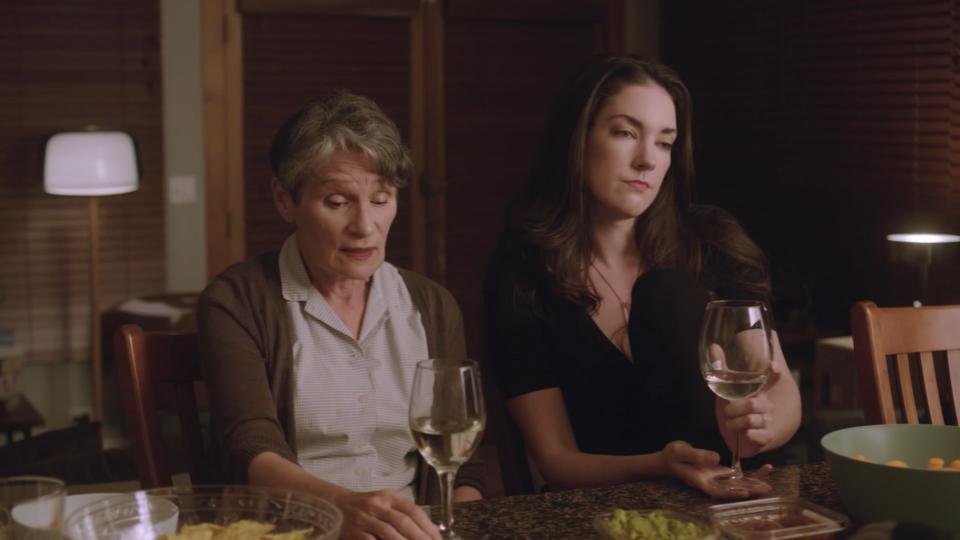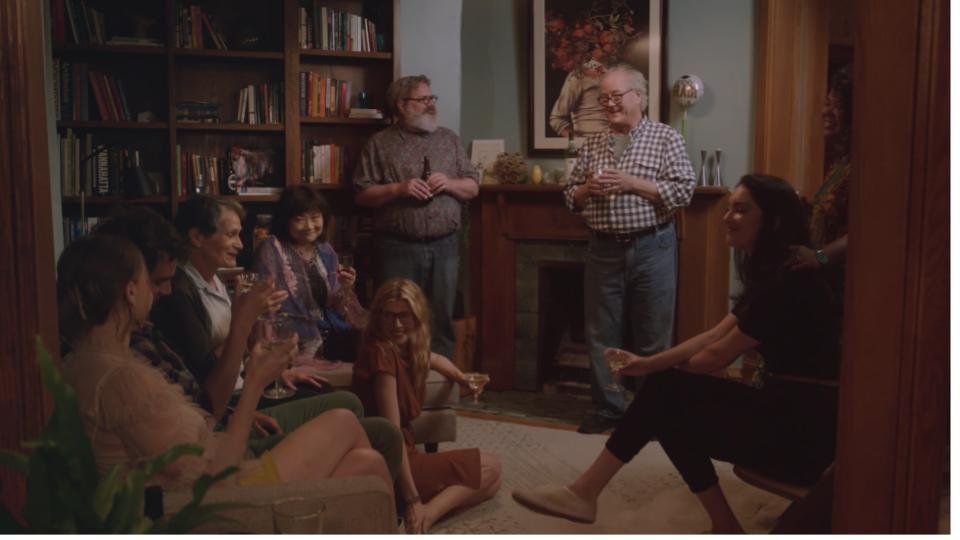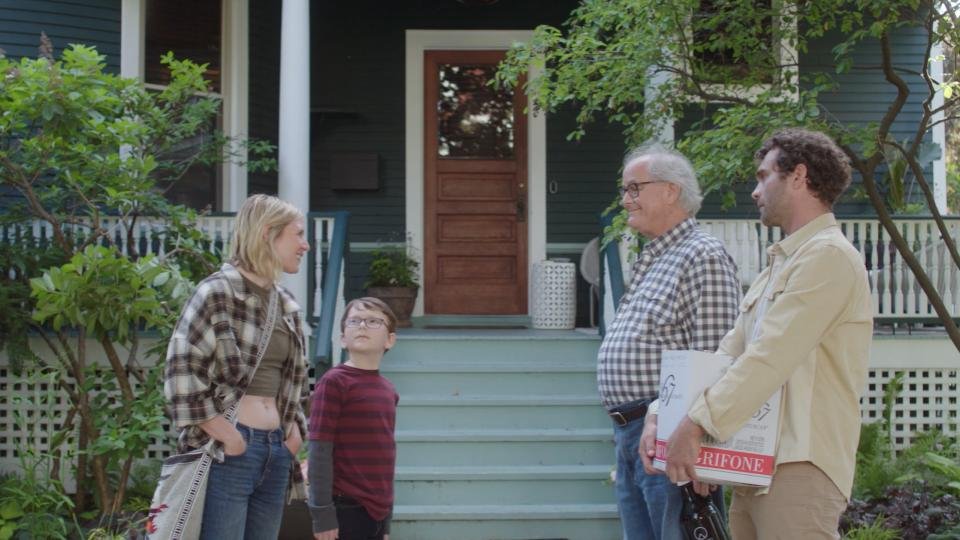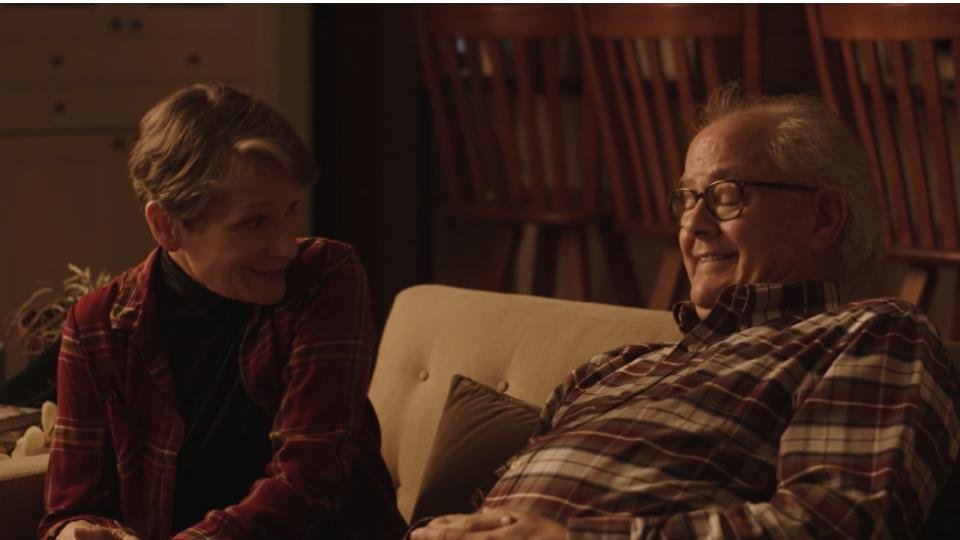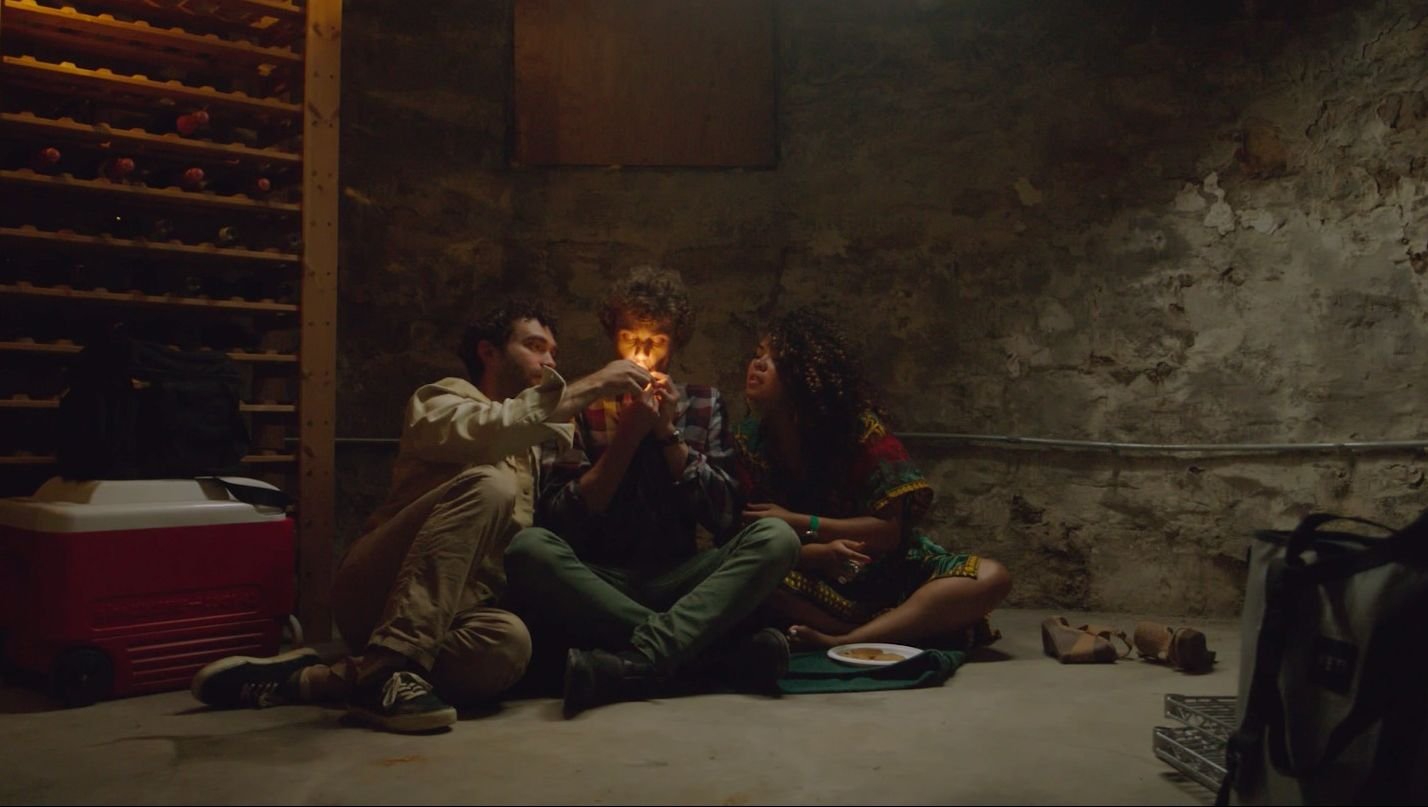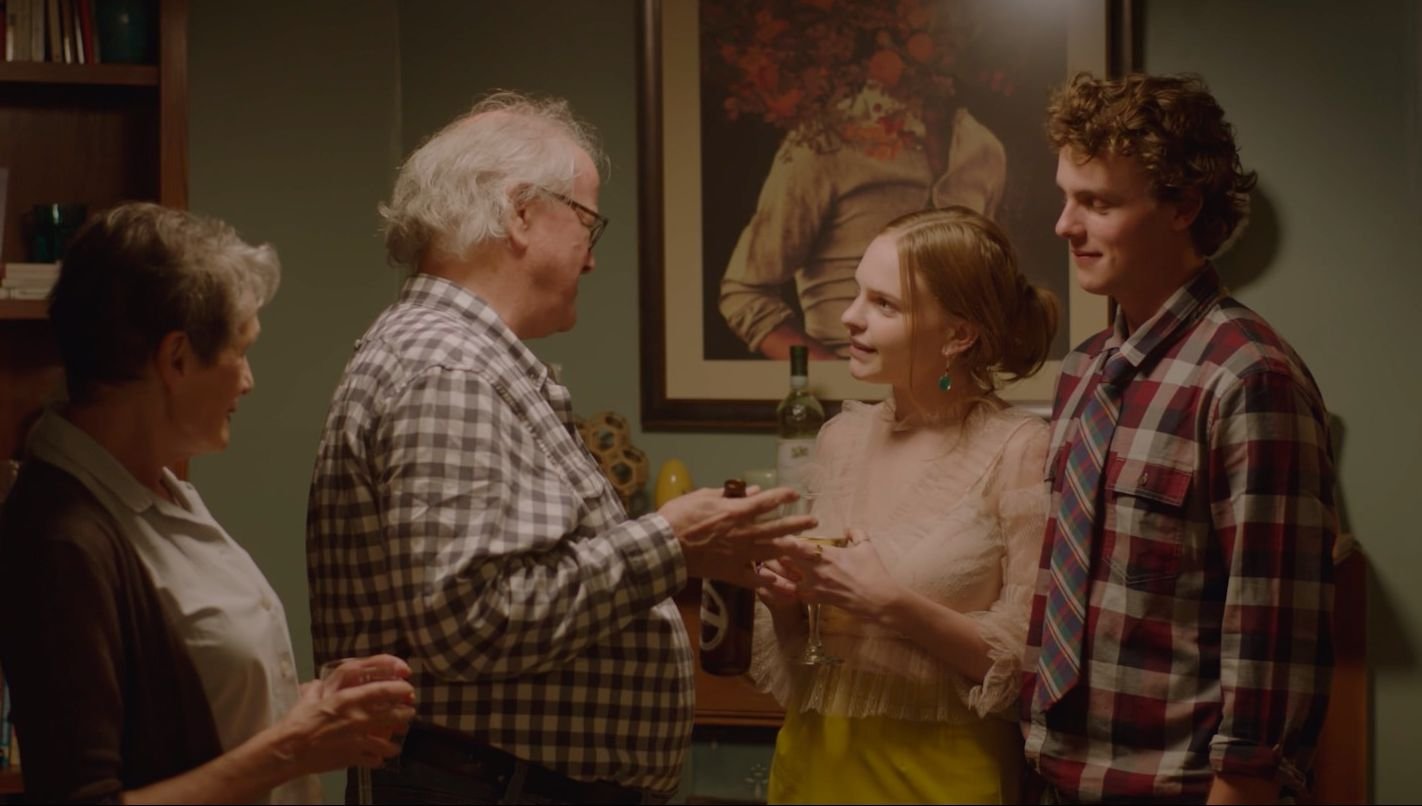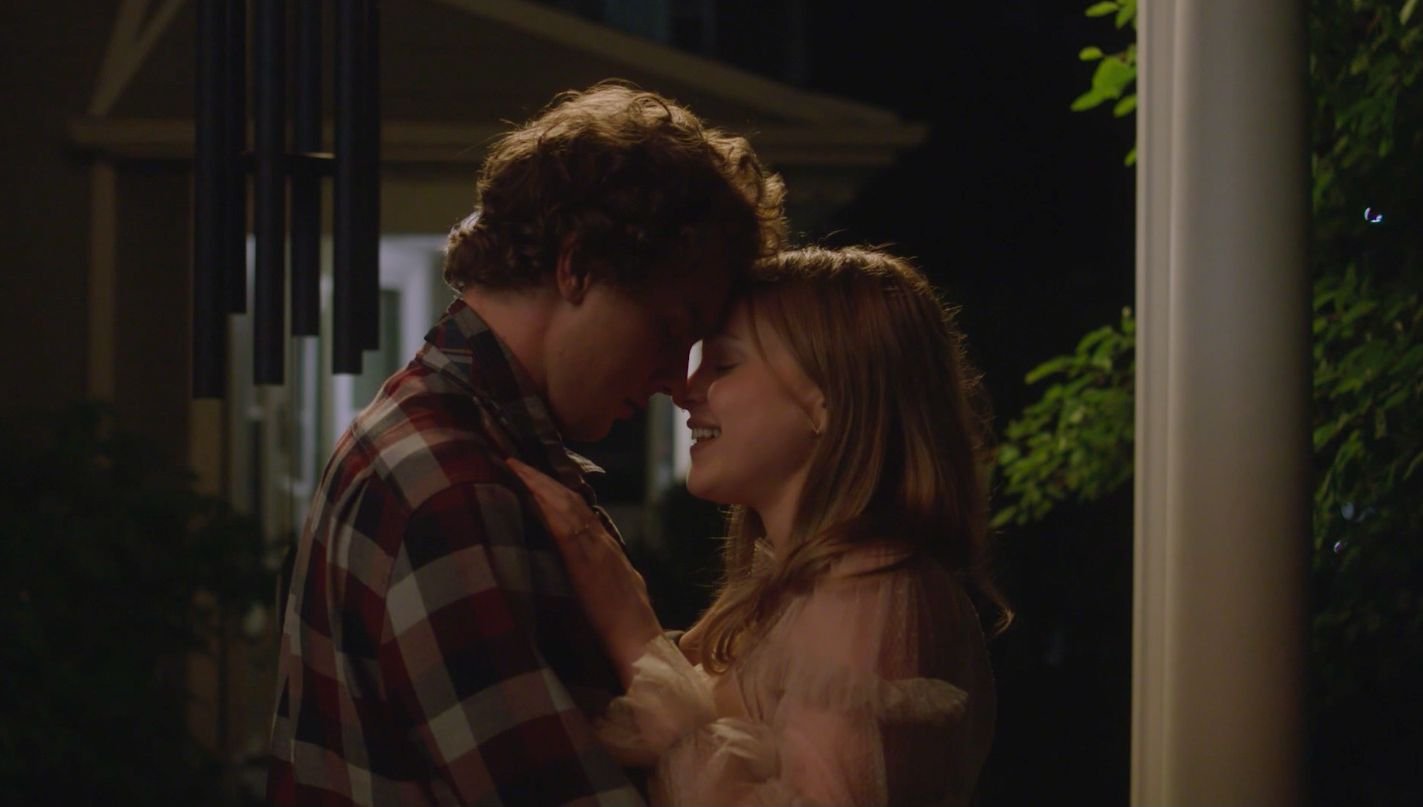MOVIE REVIEW: Relative
RELATIVE– 5 STARS
About two-thirds of the way into Relative, the new film from Chicago-based independent filmmaker Michael Glover Smith, the patriarch of the Frank family offers a toast to his college graduate son that perfectly encapsulates the winsome weight of the entire movie. Clinking glasses in a multidirectional fashion, the father quietly chants, “Not above you, not below, but right beside you.” The salute speaks to the unbreakable bonds of family and the ever-competing joys and burdens that are shared equally by all members.
LESSON #1: THE MANY MEANINGS OF “RELATIVE”– The delightful mirth of that toast is the warmth richly displayed in and typified by the title of Relative. It’s a perfect word for the film to mold and distinguish. Everyone is connected, yet no one is the same. Mindsets might be shared only to be differently interpreted person-to-person. It’s all just exactly the word: relative. As the film blossoms, the audience wonders how this particular family, the relative good ones and bad ones, end up the way they do. Lo and behold, that aforementioned toast becomes a tremendous turning point in the movie.
Before that moment, Relative began with introductions of characters, their obligations elsewhere, and their traveling distances from the classic home of David and Karen Frank (Francis Guinan of Henry Gamble’s Birthday Party and Wendy Robie of Twin Peaks) in the diverse Rogers Park neighborhood on the far north side of Chicago. Their four adult children are reunited to celebrate the youngest, Benji (Chicago Fire actor Cameron Scott Roberts), receiving his undergraduate degree and being earmarked to work for Google in their geographic information systems department. The day’s festivities are in his honor, yet Benji is willing to ditch his own party to court his fetching theater major classmate Hekla (the debuting Elizabeth Stam).
Benji moving out and starting his career would finally mean an empty nest for David and Karen if not for their eldest son Rodney (David F. Gallagher of Orders) occupying their basement. Rod is a military veteran in a rudderless place of angry despondency that has gone on for years. A bad breakup with Sarah (Collider’s Heather Chrisler), the mother of his bright son Davey (Gabriel Solis), has added to the pain.
Meanwhile, the two Frank daughters arrive from their respective married lives in the Quad Cities and Madison. Norma (Emily Lape of Mercy’s Girl) leaves her husband and children at home to make the trip solo, while Evonne (producer and burgeoning filmmaker herself Clare Cooney) and her partner Lucia (Grey’s Anatomy’s Melissa DuPrey) have brought their daughter Emma (Arielle Gonzalez) for the gathering. As people come together, Relative observationally tracks where everyone’s emotional states are at with their present situations beyond their childhood home.
LESSON #2: HOME IS THE GREATEST INTERSECTION OF LIFE– The hint is that this weekend is the first time in a long time everyone has been under the same roof. While two of the four Frank children have moved out with a third in Benji soon to do the same, the familial links between parents, children, and siblings still bleed through this old house. Production designer Stephanie McDonald and cinematographer Olivia Aquilina, both working their first feature film, created and occupied a lived-in setting emulating a safe space of belonging. Their work became a sturdy container for the magnetic moments of affection working to counter the repelling ruffles of strife among the Franks.
LESSON #3: THE DISINTEGRATION OF FAMILY– As teased, all is well and good for the most part until that toast. Afterwards, new announcements are made that threaten collapse for several pillars of this family unit. The casual conversations that started Relative to reveal little bits of individual and family history turn serious and soul-baring. How the family members react, heal, or move on from the revelations and shared quality time comprises the culmination of the extremely strong storytelling.
LESSON #4: DO WHAT YOU WANT TO DO— One standout quality of the merging stories being told in Relative is the welcome allowance for freedom within this family. Each person has their own very unique compass bearing that guides them. From the senior worries of aging parents to the trials and tribulations of the other romantic relationships present on down, there is a granted “do want you want to do” allowance for people to choose their own paths for happiness, which is something that should go for all of us watching the movie too. The appreciation present with the Franks is that, even if those choices come with great sacrifices or lead to setbacks, many of which come to light in the film’s conversations, there’s always the safety net of family.
Continuing a masterful filmmaking strength for a fourth feature film, Michael Glover Smith (Mercury in Retrograde, Rendezvous in Chicago) has a superb gift for writing and directing conversations. It doesn’t matter if its two actors face-to-face, side-by-side, or a larger collection of mixed participants. It doesn’t matter if those talks happen in a quiet room, a serene spot outdoors, or a busy urban watering hole. Smith’s scripts move with a vivacious flow and carry a sophistication for allowing actors to create impressionable personalities from their characters, not just hit marks for dialogue dump or exposition delivery. This is, without a doubt, his best and fullest screenplay yet.
Smith adds even greater energy with a pitch perfect soundtrack, curated by music supervisor Cait Rappel, of moody instrumentals and indie singer-songwriters telegraphing moments with levity or lament that serve the intent of the matched scenes. For example, there is a delightful dance montage set to “Tisch Tennis” by Outrun, where labels and mindsets melt away for unbridled camaraderie. So much of the tone choices alongside the music are about steering character trajectories of who’s up, who’s down, who wants to rewind time, and who is accelerating towards something unknown.
The storytelling efficiency of Relative is marvelous. In a tidy 97 minutes, no less than nine adult characters enter this domestic intersection with arcs to frame and unite. Not a single one of the actors, along with the two child performers playing grandkids, are short-shrifted from receiving spotlight opportunities, meaningful scene involvement, or satisfying finishes. Some of the standouts among the remarkable cast are the “leave ‘em laughing” charisma from Elizabeth Stam, the hammer of pent-up stress released from Clare Cooney, and the soothing balm and lit cigarillos of Wendy Robie and Francis Guinan.
A more possessive writer would pick their favorites for predictable perfection and sidebar the others to stock cliches. Some undisciplined mumblecore director would fail at tying them together at all and drop an opening ending that pisses momentum away. That’s not Relative, and that’s not Michael Glover Smith.
If Relative was trite, the plain circumstances or external vices would make everything turn out easily and conveniently. While family and good friends are the real answers for what makes matters of life easier, the effort of all involved to get there is hard. Smith understands that greatly, creating a relatable emotional obstacle course of cobwebs and intact skeletons in closets that promise to linger for future growth behind the credits.
Live in this family for a bit. Soak in their aura. With a dynamite line in Relative, a suitor says to their prospective squeeze, “I could drink a case of you.” Let Smith’s words and his ensemble fill and stir the drink of your spirit. You’ll be intoxicated by the results.
LOGO DESIGNED BY MEENTS ILLUSTRATED (#1053)


